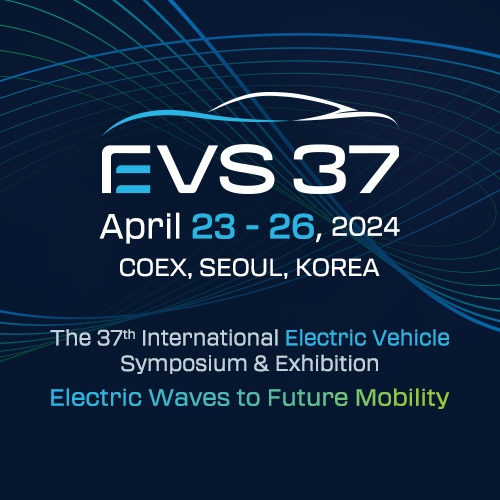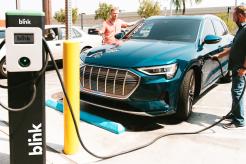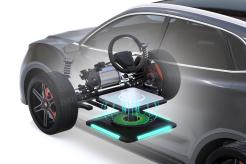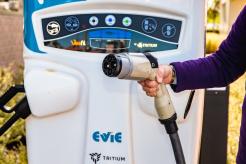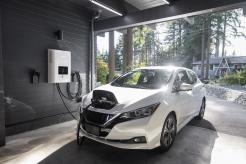Many carmakers have switched their EV charging plugs and outlets to the Tesla design. Is the Tesla EV charging plug on the road to becoming the industry standard?
When EV owners take the road for long-distance travel, they usually look for DC fast-charging stations along their route.
Currently, DC fast chargers use three kinds of connectors:
- Combined Charging System (CCS). Most major carmakers in the US and popular foreign brands have used the CCS connector for cars they sell in North America. However, this system has two critical flaws. Namely, (1) EV owners must use a different connector for DC fast charging than for levels 1 and 2, and (2) CCS charging stations have spotty coverage, particularly in sparsely populated areas.
- Tesla. Part of the Tesla charging connector’s charm is that owners can use one connector for all charging types. This eliminates the hassle of needing a separate connector for home charging at level 1 or 2 and yet another for DC fast charging on long road trips. However, only Teslas can charge up at Tesla Supercharger stations since Tesla chargers have built-in authentication that denies all other brands access to power.
- CHAdeMO. Although CHAdeMO connectors are the standard charging option in Japan, the only cars in the US today that use this connector are Nissan’s LEAF and Mitsubishi’s Outlander PHEV.
Tesla’s Rebranded Connector Gains Fans
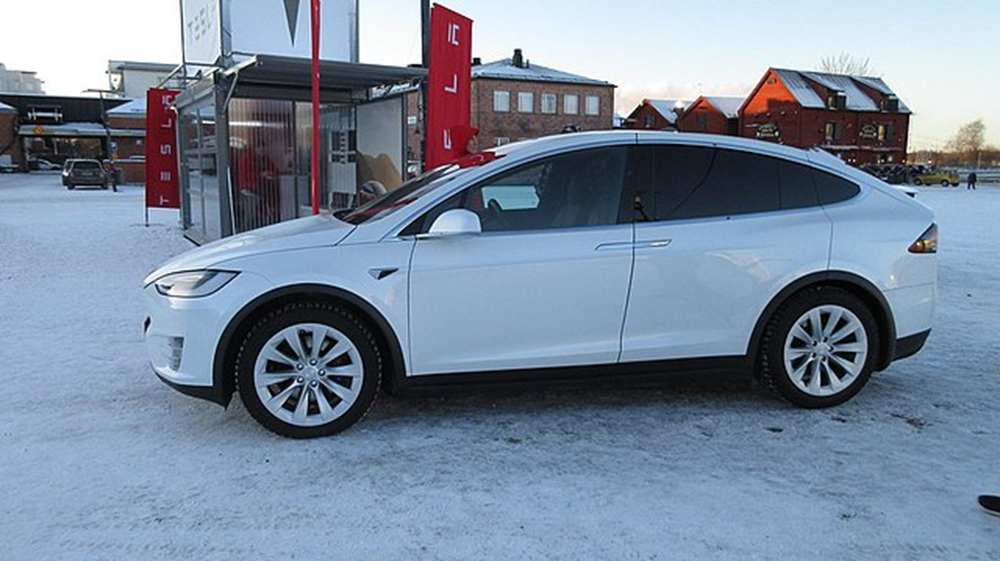
Image via Wikimedia Commons
However, the CCS’s grip on the nation’s EV infrastructure might change. The company just rebranded its connector as the North American Charging Standard (NACS), likely to encourage adoption by other EV brands, as The Verge’s Umar Shakir points out.
That move, Shakir says, has already produced two adopters: Ford and GM. That’s two of the nation’s Big Three automakers.
And with the Tesla connector’s ability to move seamlessly from home charging stations to DC fast-charging options, that move should eliminate one of the perceived hassles of EV ownership.
Connector Standardization Is One Factor in EU Electric Vehicle Adoption
Standardizing connectors seemed to have worked to increase EV adoption in the EU. European lawmakers mandated all EV manufacturers, including Tesla, to use CCS2 connectors.
Certainly, that move has driven more European car buyers to consider an electric vehicle. EV sales, particularly battery-only vehicles (BEVs), have rocketed over the past year. By the end of 2023, European EV sales look to increase by 25% over 2022, according to Counterpoint Research’s Soumen Mandal.
Major US Auto Industry Organization Moves Toward EV Charging Cord Standardization
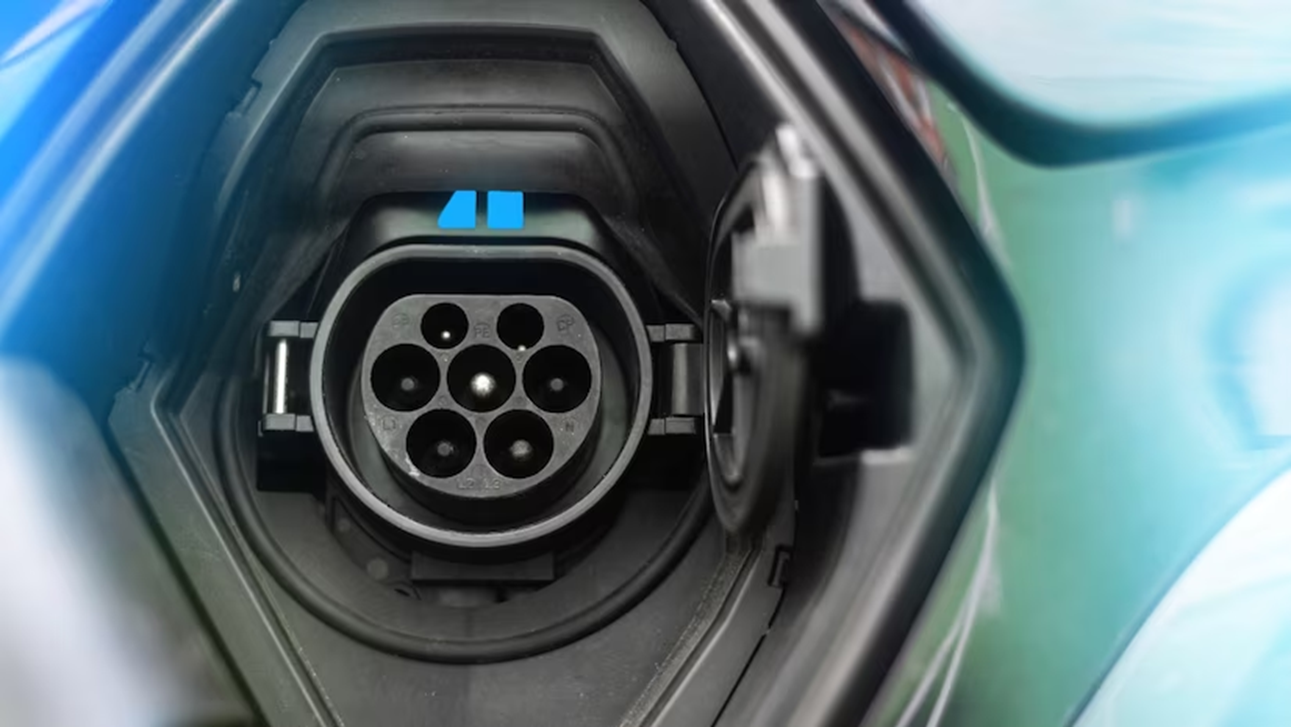
Image via Freepik
In June 2023, SAE International (the former Society of Automotive Engineers) announced its plans to set standards for Tesla EV charging cords, as ABC News’ Tom Krisher reported. The move happened close to Ford and GM’s decision to adopt the NACS connector and join the Tesla Supercharger network.
In addition to Ford and GM, EV automaker Rivian hopped aboard the Tesla train. Volvo also announced that it would join the Tesla network in 2024, planning to install Tesla charging connectors in its new vehicles by 2025. Mercedes-Benz joined the list of carmakers moving to the Tesla network as well. Hyundai and Stellantis (Dodge) also are looking at shifting their charging technology to the Tesla system.
For now, Ford and GM EV owners will need to use an adapter to charge their vehicles at Tesla charging stations. However, as CNBC’s John Rosevear points out, GM and Ford plan to make Tesla charging tech standard on their cars in 2025.
What Does This Move Mean for the EV Charging Industry?
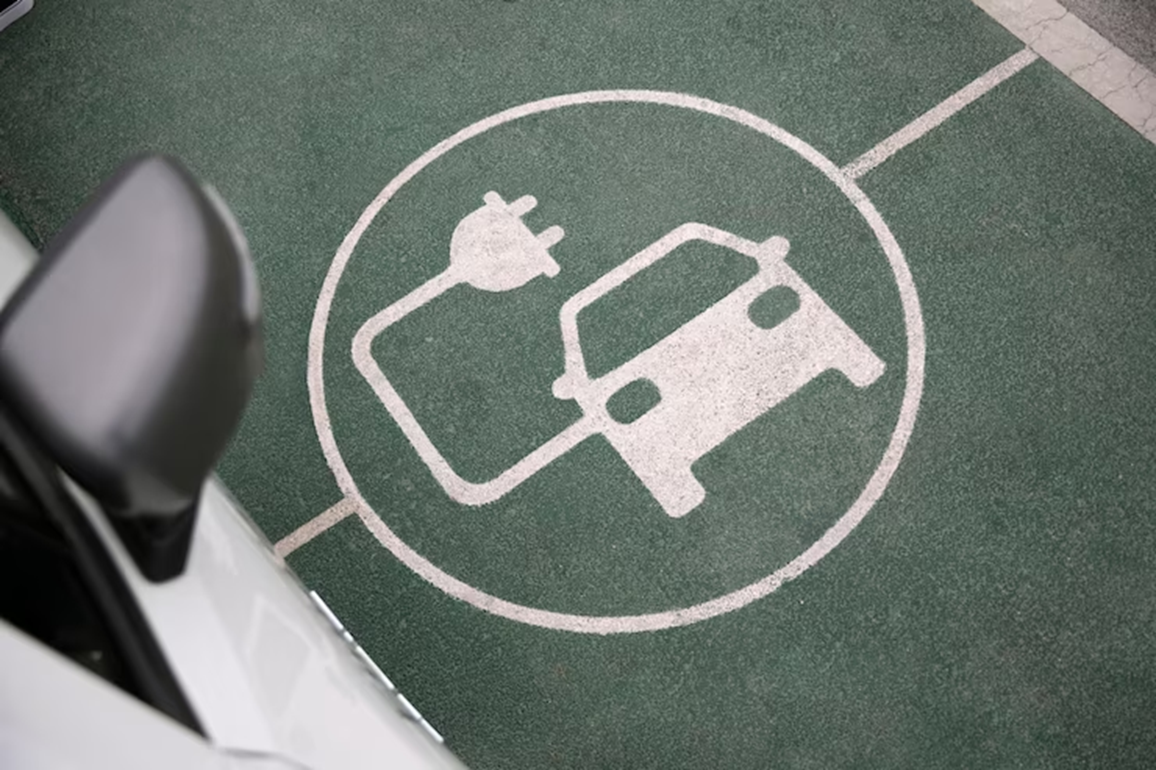
Image via Freepik
For now, charging stations will need options for both CCS and Tesla plugs — and probably the CHAdeMO ones, although the Japanese connectors look to be on their way out in the US. Charging stations with Tesla charging connectors must also include CCS options to receive federal funding.
With more fast-charging plugs than other networks across the country, most along frequently traveled freeways, Tesla had already positioned itself to become the dominant force in EV charging. The company’s openness to charging other brands, as opposed to its formerly exclusionary stance, has only strengthened its position in the EV charging space.
So, although the CCS connectors will remain in use, it looks like Tesla’s Supercharger network will set the standard for the future. The network’s availability and Tesla plugs’ ability to charge at home and fast-charging stations take much of the hassle of owning electric vehicles off the table.
New charging stations or established ones that want to add Tesla chargers to their facilities can apply to Tesla to host a supercharger. Commercial properties that want to make Tesla charging infrastructure available to their tenants and customers can partner with Tesla to install on-site wall connectors.
And, as a JD Power survey shows, Tesla chargers are more reliable, eliminating the worry of range anxiety since they can charge a vehicle to full capacity in a mere 15 minutes. These chargers offer convenience and reliability — two factors the EV charging industry needs to make EVs American consumers’ top choice in a new vehicle.
There’s something even more significant afoot. With more EVs on the nation’s roads, the EV charging industry will become an even more attractive option for American investors. The more money investors pour into the EV charging space, the more the industry will grow.
Undoubtedly, Tesla has grasped a firm foothold in the future of charging technology. Even more importantly, though, it can potentially transform the EV industry itself — yet again.
Don’t Miss Your Chance to Take Advantage of Emerging EV Charging Technology
Tesla’s rise to prominence in the EV charging space is only one of the emerging trends in this fast-changing industry. There’s one place to soak up all the latest news and predictions: an EV Charging Summit event.
With hands-on workshops hosted by some of the EV charging industry’s top names, one-on-one questions and answers, exhibits, and specialty tracks covering financing, infrastructure, and much more, you’ll learn everything you need to start an EV charging business or expand one you already own.
Plan to attend our next event and set yourself up for success in this fast-growing industry. Register today!

